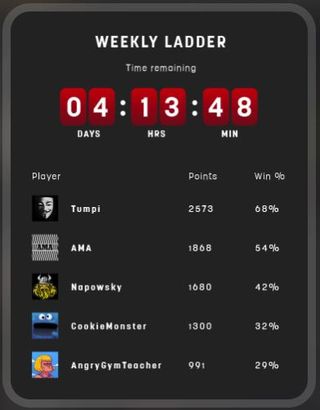This esports platform uses blockchain to let Dota 2 players bet on matches and prevent cheaters
FirstBlood is a new esports platform that combines cryptocurrency with Dota 2.

It was the middle of a Monday afternoon when Marco Cuesta, co-founder of the blockchain esports platform FirstBlood, gave me a call. After plenty of jargon and esports talk had been thrown around, Cuesta's vision for FirstBlood was clear: The future of esports, he says, is one where high-quality competition and rewards systems are made available to everyone, not just professional gamers, and FirstBlood is going to help bridge that gap. But whether or not blockchain technology and cryptocurrency will really help usher in this new era is not so clear.
What is blockchain, and how can esports benefit from it?
Blockchain is basically a decentralized network that's powered by peer-to-peer communications and transactions. If you're a fan of HBO's Silicon Valley, think of what Richard Hendricks was trying to accomplish with a decentralized internet—it's similar, but different. Instead of having companies maintain everything on a few servers, entire groups of people can interact with each other on a "block" that records data and transactions specifically for those people. Once the interactions are complete, the data is recorded for as long as the network exists, and the next "block" on the "chain" is created after a new set of interactions begins. You can think of each block as a unique page in an ongoing ledger.
FirstBlood takes advantage of blockchain by offering a "juror" system that allows people to review the results of a match if they're disputed.
A big draw of blockchain is the use of encrypted currency, or "cryptocurrency". This is a type of digital currency that's usually invented by a company or organization for its customers or users. What makes cryptocurrency secure is a process called "mining". As defined by Digital Trends, "Mining uses algorithms to go through each transaction, encrypt the cryptocurrency, and add it to a digital ledger, essentially verifying it and cementing its position online." The currency is visible to everyone on a specific block, so it's virtually impossible to counterfeit.
Esports and blockchain intersect in uncharted and untested waters. While the benefits of this relationship need time to fully manifest, there are a couple of topics we can discuss with some certainty right now. The first is security. Blockchain-based platforms aren't vulnerable to DDoS attacks, which are annoying to users and can cost companies a ton of money to clear up. Since blockchain replaces centralized servers with distributed systems of thousands of nodes, there's no single target for a DDoS attacker to hit.
The second is more pertinent to esports: the need for better scoring systems. Nothing's worse than losing a match due to lag or some other anomaly that was either out of your control, or abused by your opponent. One way that FirstBlood takes advantage of blockchain is by offering a "juror" system that allows people to review the results of a match if they're disputed, and adjust the outcomes accordingly.
So what is FirstBlood?
In the simplest of explanations, FirstBlood is an app that syncs up with your Steam account, allowing you to compete against other players on a ladder for in-game rewards. Only Dota 2 is supported right now, but more games will be added down the road. Once the competition window is live, FirstBlood tells competitors which in-game custom lobby to join. They risk tokens (FirstBlood cryptocurrency) on themselves, play the match, and the winner walks away with the tokens. The more you win, the more you can compete, and the leaders win items that have real monetary value. It's still in beta right now, and while I can tell you that the ladder rankings have been fluctuating, FirstBlood could not provide user numbers at the time this article was published.

FirstBlood also wants to break more into the professional level of esports. The company already has its feet wet in that regard with Dota 2 thanks to BITS (Blood in the Streets) EU, a tournament the company hosted back in June. Some big names including Team Singularity, Danish Bears, and Gambit Esports fought for their piece of a $5,000 prize pool in front of Twitch audiences that capped at about 3,500 viewers per match. While these numbers aren't a whole lot to write home about, if nothing else, it tells us that blockchain is up to the challenge of hosting significant events down the road. BITS Americas is currently being planned for next month in early November.
Comic deals, prizes and latest news
Sign up to get the best content of the week, and great gaming deals, as picked by the editors.
Most recently, and perhaps most significantly, FirstBlood partnered with the China General Administration of Sport to host the China University Esports League (CUEL), in which players from thousands of universities compete in each year. If successful, it could be a very big step for the integration of blockchain technology into the esports industry.
Though these tournaments and partnerships are great for blockchain, it's still a very new and unproven technology in the gaming world. Even in the business world, where blockchain is most popular, analysts suggest that companies be wary of how they utilize this technology.
"Blockchain won't be a competitive differentiator," according to an article by Forbes. "It's an eventual commodity function that will be embedded in every organization's processes where it's needed most. The differentiation will be in how companies use blockchain for competitive advantage."
The burden on blockchain esports platforms to establish what that competitive advantage is seems hefty. Think about a game like Overwatch for a minute. There's already a built-in ladder, as well as a reward system that's easy to engage with. It's simple, you don't need to constantly win to earn rewards, and your rolling stats are saved to your player profile after you're done playing a match. Blizzard even uses the regional Skill Rating system as a measure of one's worth to Overwatch esports. This isn't unique to Overwatch, either. It would seem as though the highest skilled players would prefer to stick with the in-game ladder for practical and professional reasons rather than compete on another platform, and casual gamers wouldn't have the need for anything beyond what the game already gives them.
There are quite a few possibilities for blockchain in esports, but the real question is whether or not the technology is in a unique position to help the esports industry evolve. There are plenty of companies out there that have some sort of technology aimed at improving or advancing competitive gaming. Some of them tweak latency, some of them have special products, and some even track your stats to give you a tailored path to improvement. Most, if not all, even host their own tournaments with the help of various sponsors. The addition of cryptocurrency is a nice touch if you're into that sort of reward system, but it's difficult to say whether or not the enhanced security and other amenities of blockchain will have a meaningful impact on esports in the long run.
The fact remains that the future of esports is one where the professional product exists alongside similar experiences for players and fans of all levels. In a sense, as certain esports leagues begin to adopt franchised structures to help pull the industry into local ecosystems, other evolutions need to occur at the casual level to propel esports to a visible space within mainstream culture. It may or may not be blockchain that brings about that change, but companies like FirstBlood are ensuring that progress never stops.
Most Popular


